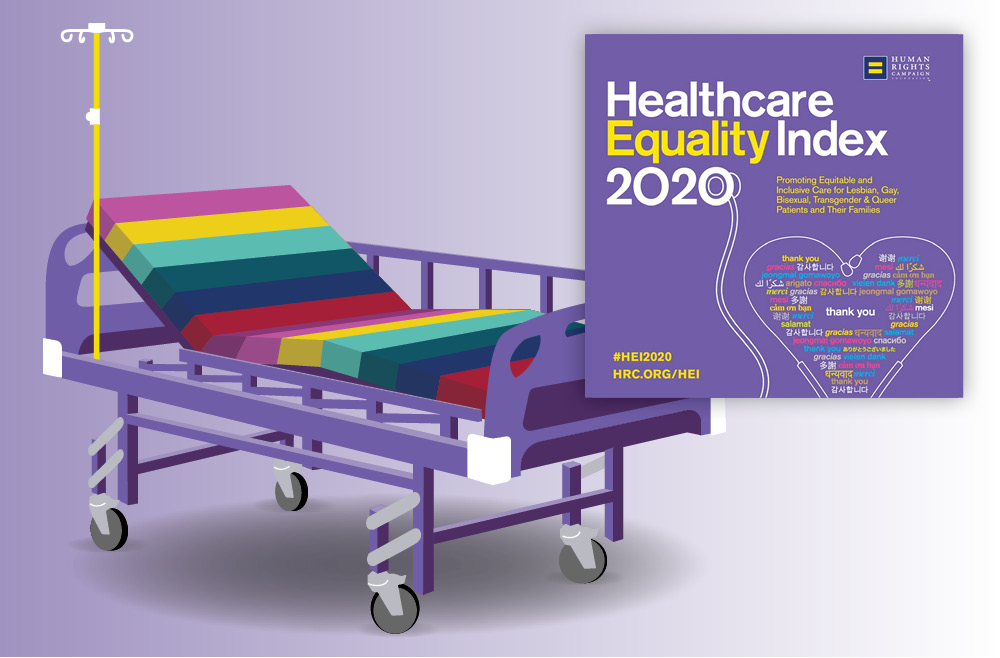
For the second consecutive year, Penn Medicine Lancaster General Health was awarded the “LGBTQ Healthcare Equality Leader” designation from the Human Rights Campaign Foundation (HRC). The news was announced in the 13th edition of HRC’s Healthcare Equality Index (HEI), released Sept. 1. A record 765 health-care facilities actively participated in the HEI 2020 survey. Of those, 495 achieved a top score of 100 to earn the coveted “LGBTQ Healthcare Equality Leader” designation, including all six of Penn Medicine’s hospital entities.
“This honor reflects LG Health’s commitment to LGBTQ patient-centered care and continuous efforts to advance the health and well-being of our community,” said Alex Jorgensen, chief human resources and organizational effectiveness officer at LG Health. “Ourwork in tackling health disparities and taking intentional steps to advance health equity is vital to creating a healthy community for all.”
LG Health began utilizing the HEI survey more than five years ago as a tool to better support its LGBTQ patients, employees and community. The survey serves as a dynamic checklist of the most current LGBTQ-inclusive policies and practices, and a foundation for process improvements.
“While we are ecstatic about getting a perfect score of 100, we will continue to evaluate and improve our processes and programs. The HEI has become a catalyst for us to come together to ask hard questions, take inventory of our strengths and opportunities, and commit to building an inclusive and welcoming environment across our entire health system,” Jorgensen said.
Michael Ripchinski, MD, chief clinical officer for LG Health, added, “We believe all patients have the right to high-quality, patient-centered health care that is equal and unbiased. An inclusive workforce and clinical learning environment help us continuously improve patient care and strengthen our research contributions to medical science. I am pleased LG Health is taking steps to help clinicians and other caregivers understand, appreciate and provide equitable health care to all patients regardless of sexual orientation, gender, race or religion.”